[John] McCain seemed to be winking to the Right, and [Barack] Obama seemed to be winking to the Left. Neither one of them – if McCain had been elected we’d still be where we are on gay rights.
BILL AYERSThere was a sense of palpable relief that George [W.] Bush was leaving and that the Republicans had slipped back and that was a wonderful feeling.
More Bill Ayers Quotes
-





![Bill Ayers Quote - [John] McCain seemed to be winking to the Right, and [Barack] Obama seemed to be winking to the Left. Neither one of them – if McCain had been elected we’d still be where we are on gay rights.](https://minimalistquotes.com/images/john-mccain-seemed-to-be-winking-to-the-right-and-.jpg)
-





![Bill Ayers Quote - I do think [Barack Obama’s] strategy for re-election is so misguided. He’s counting on the Republicans to self-destruct, and they might, you know, but they might not. So he might be a one-term president.](https://minimalistquotes.com/wp-content/uploads/2023/02/i-do-think-barack-obamas-strategy-for-re-election--683x1024.jpg)

I do think [Barack Obama’s] strategy for re-election is so misguided. He’s counting on the Republicans to self-destruct, and they might, you know, but they might not. So he might be a one-term president.
BILL AYERS -





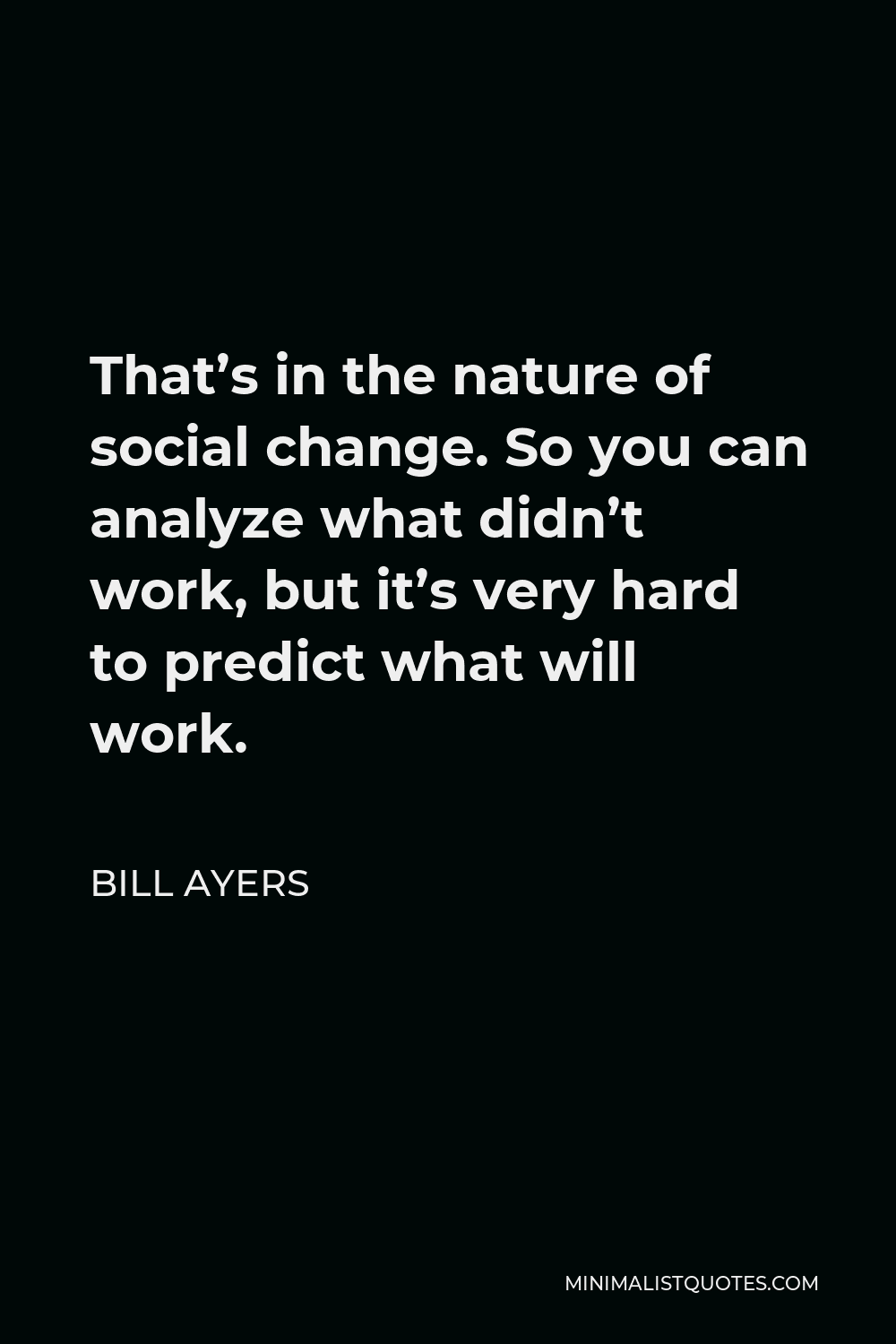
That’s in the nature of social change. So you can analyze what didn’t work, but it’s very hard to predict what will work.
BILL AYERS -





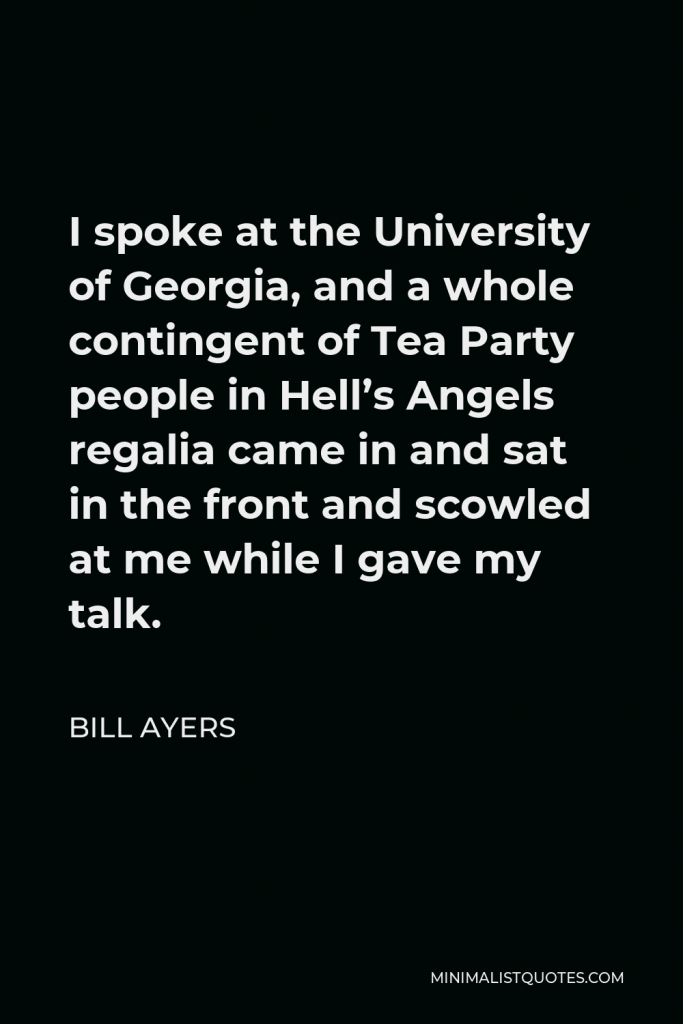

I spoke at the University of Georgia, and a whole contingent of Tea Party people in Hell’s Angels regalia came in and sat in the front and scowled at me while I gave my talk.
BILL AYERS -





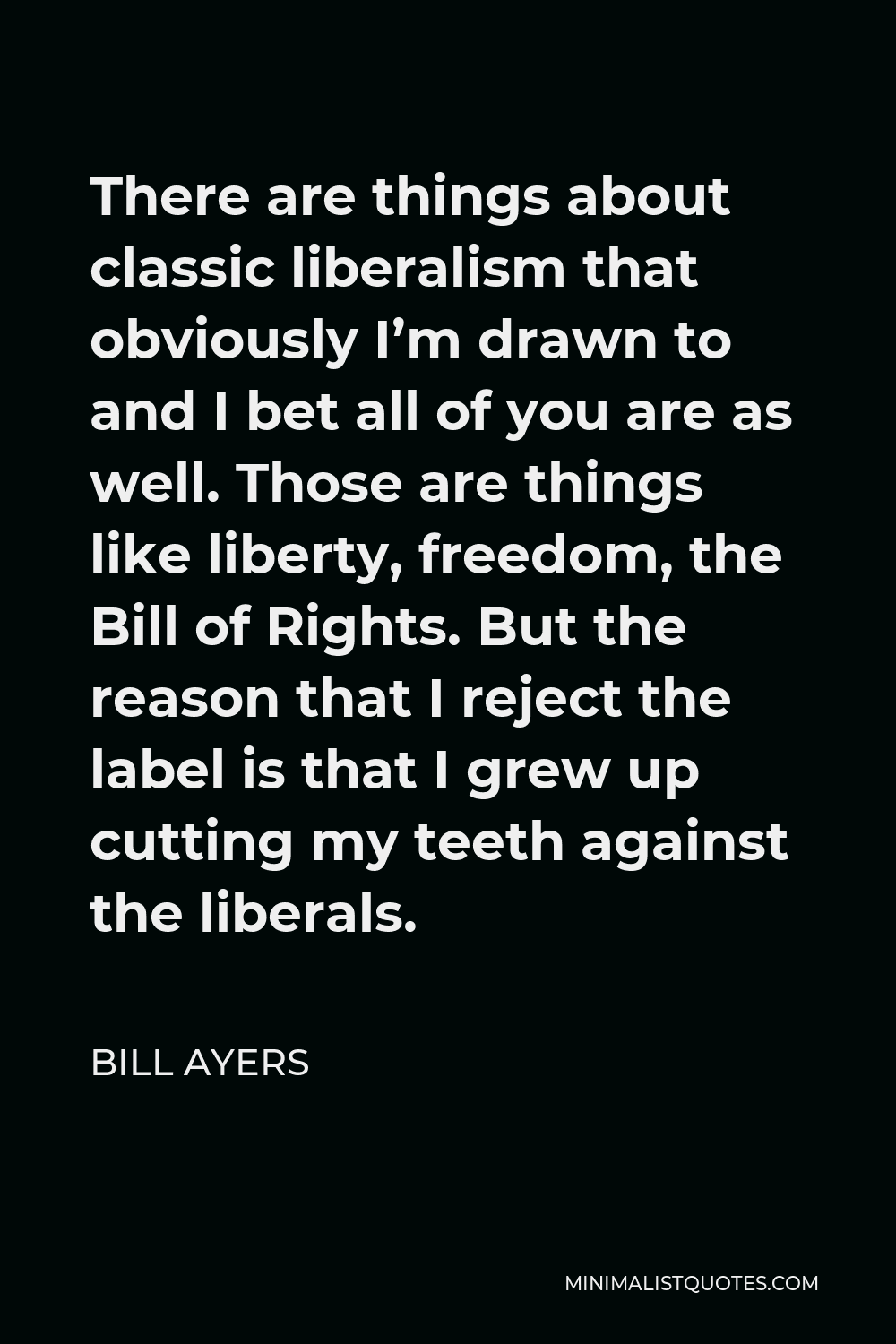
There are things about classic liberalism that obviously I’m drawn to and I bet all of you are as well. Those are things like liberty, freedom, the Bill of Rights. But the reason that I reject the label is that I grew up cutting my teeth against the liberals.
BILL AYERS -





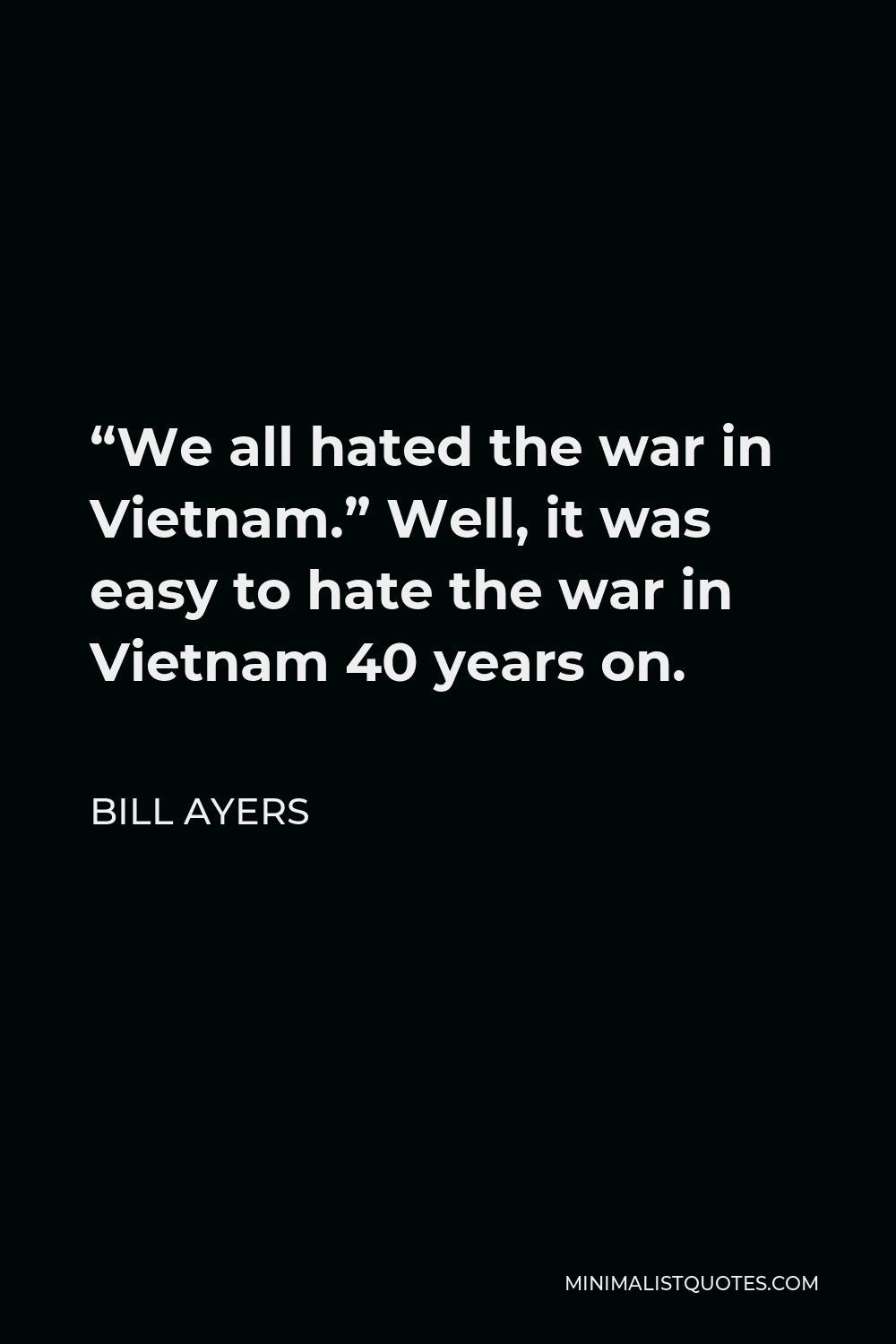
“We all hated the war in Vietnam.” Well, it was easy to hate the war in Vietnam 40 years on.
BILL AYERS -





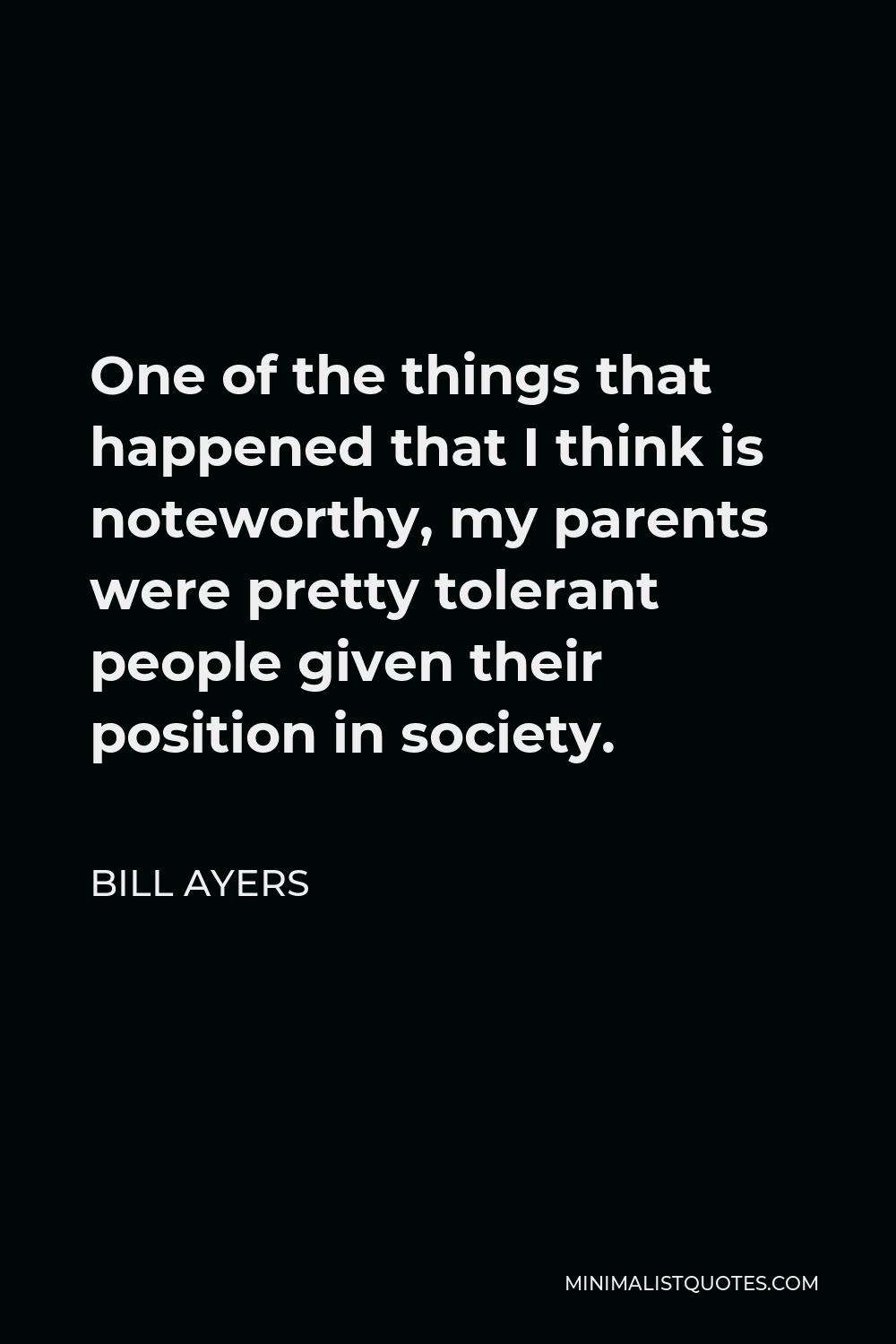
One of the things that happened that I think is noteworthy, my parents were pretty tolerant people given their position in society.
BILL AYERS -





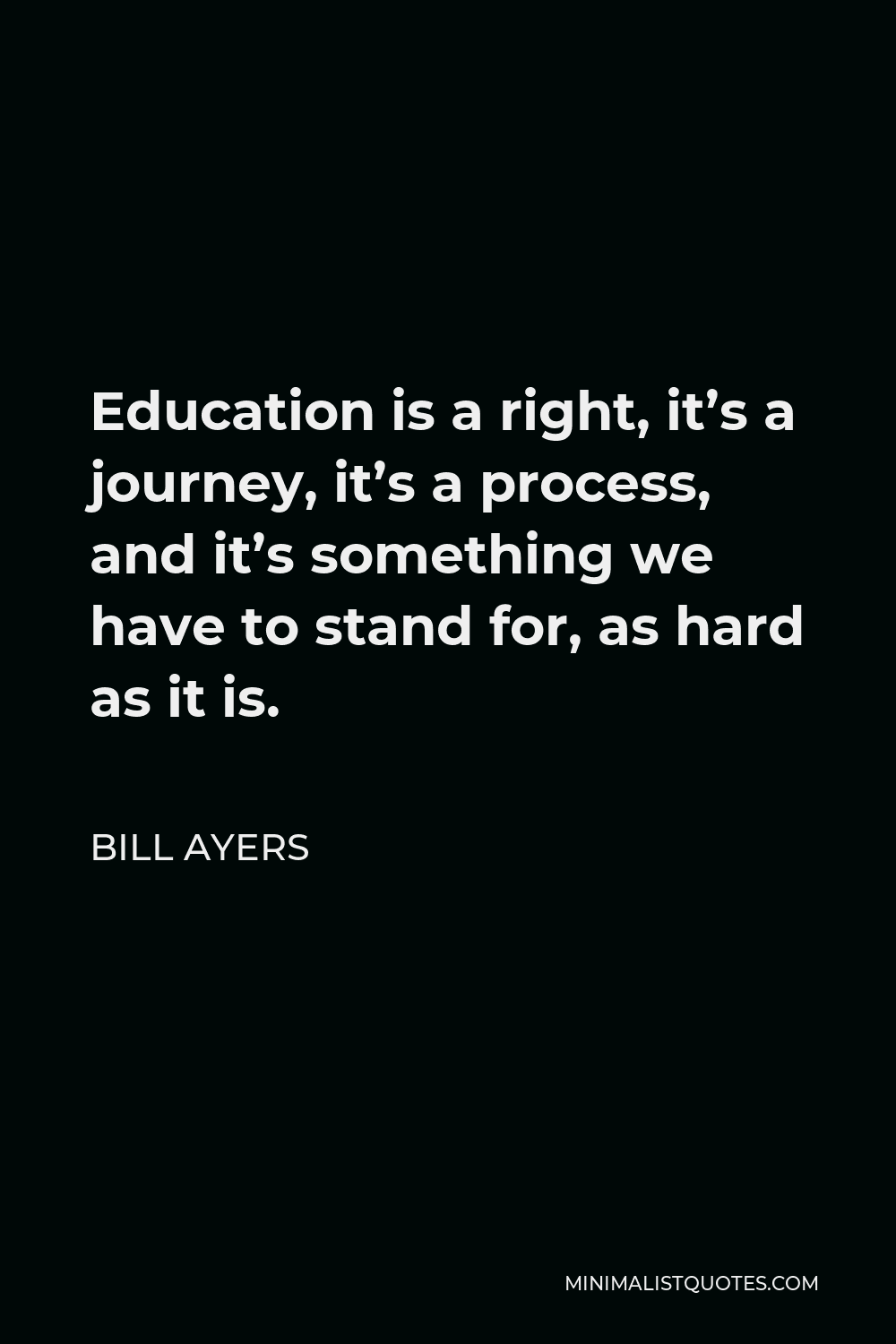
Education is a right, it’s a journey, it’s a process, and it’s something we have to stand for, as hard as it is.
BILL AYERS -





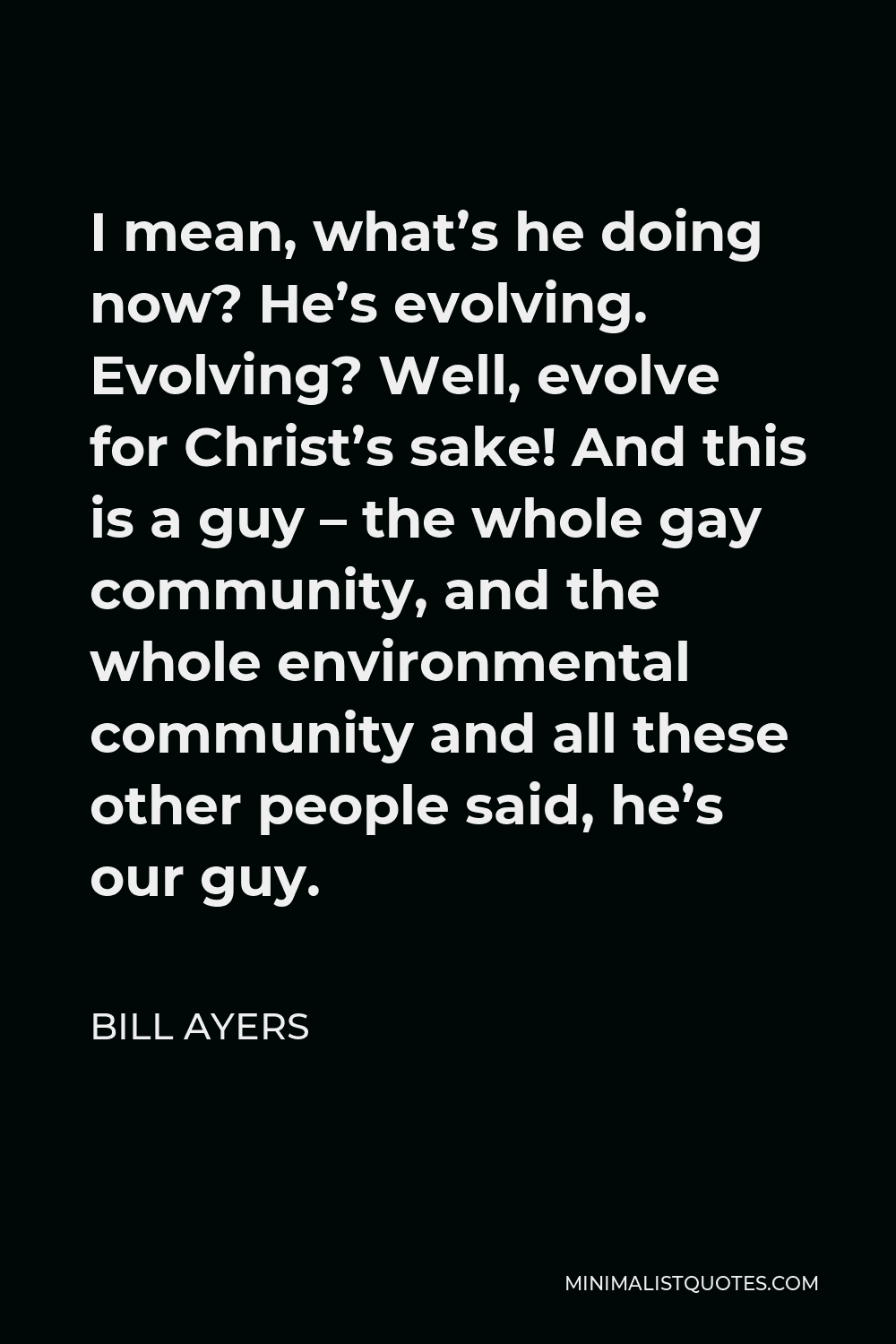
I mean, what’s he doing now? He’s evolving. Evolving? Well, evolve for Christ’s sake! And this is a guy – the whole gay community, and the whole environmental community and all these other people said, he’s our guy.
BILL AYERS -





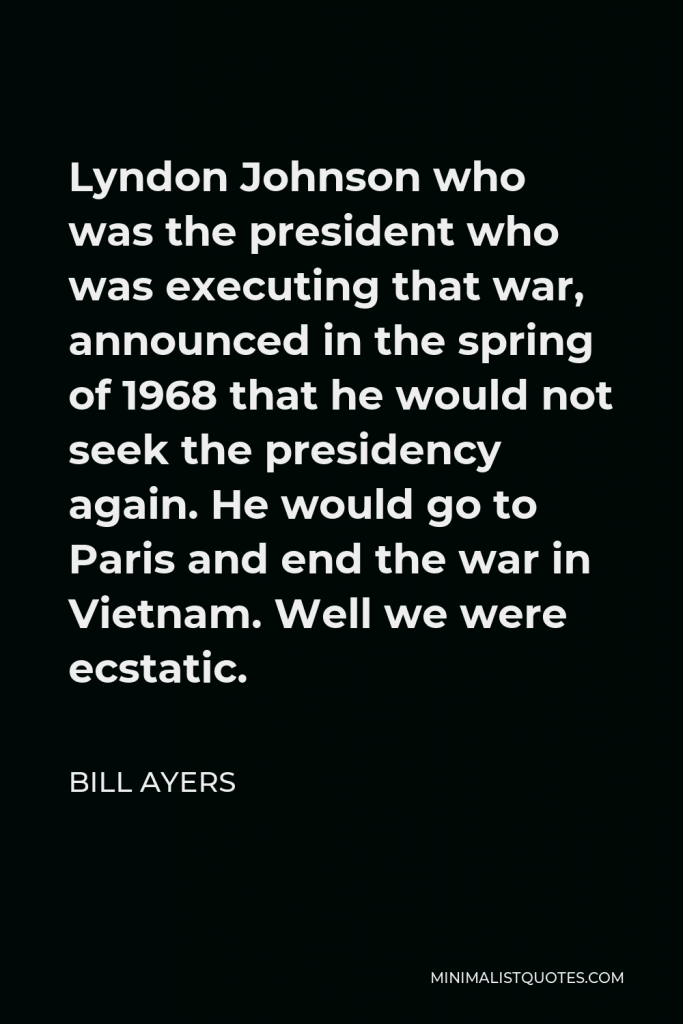

Lyndon Johnson who was the president who was executing that war, announced in the spring of 1968 that he would not seek the presidency again. He would go to Paris and end the war in Vietnam. Well we were ecstatic.
BILL AYERS -





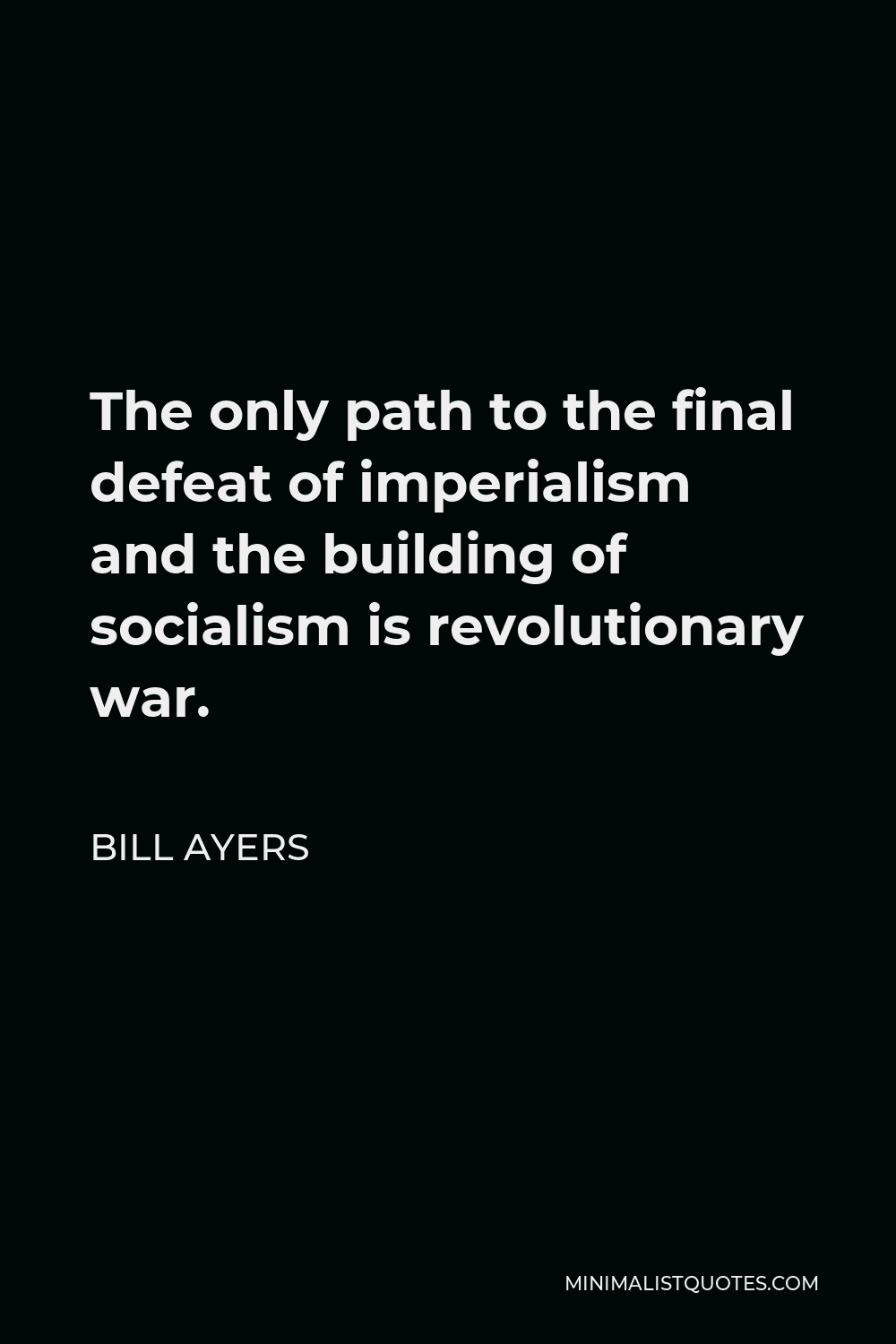
The only path to the final defeat of imperialism and the building of socialism is revolutionary war.
BILL AYERS -





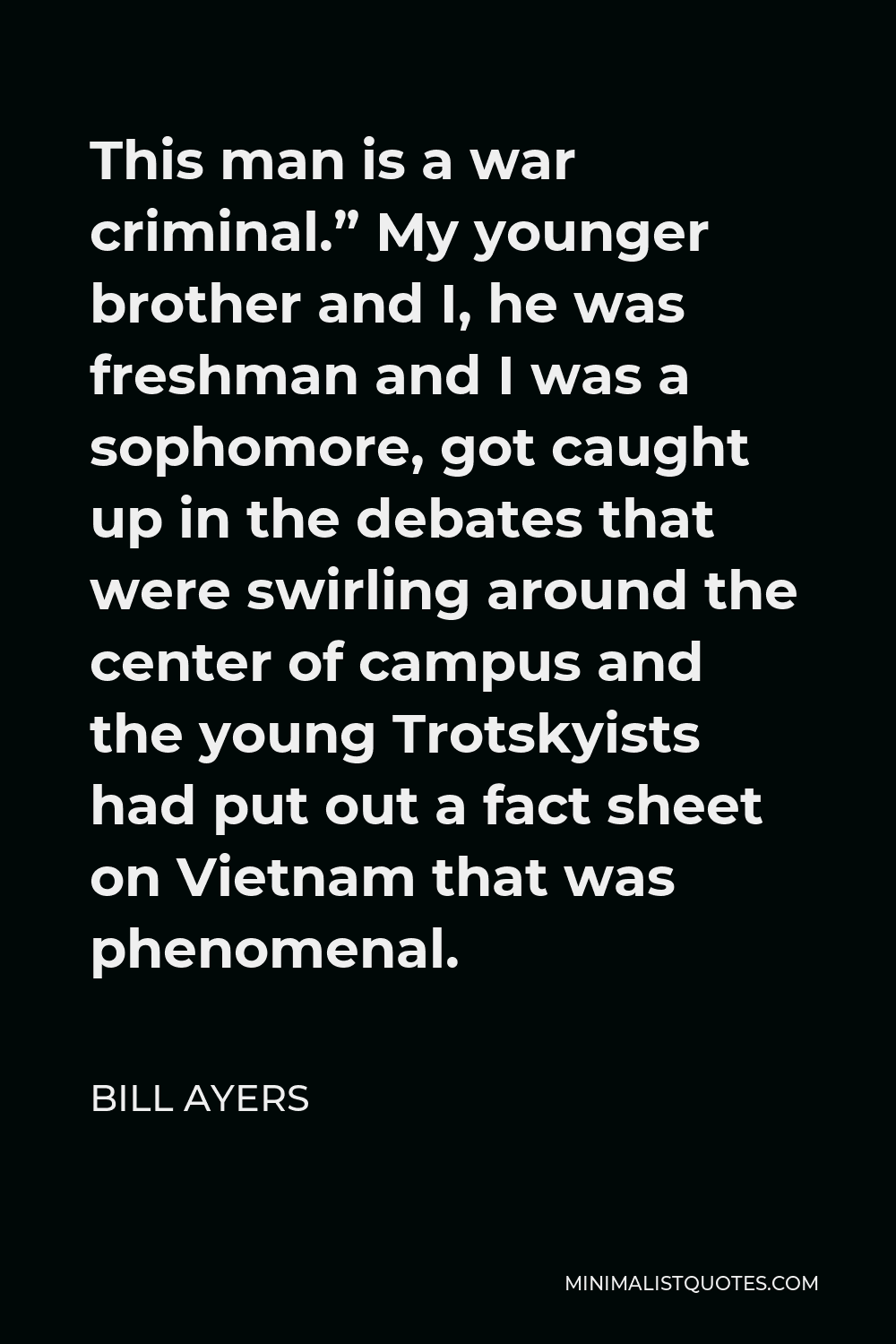
This man is a war criminal.” My younger brother and I, he was freshman and I was a sophomore, got caught up in the debates that were swirling around the center of campus and the young Trotskyists had put out a fact sheet on Vietnam that was phenomenal.
BILL AYERS -





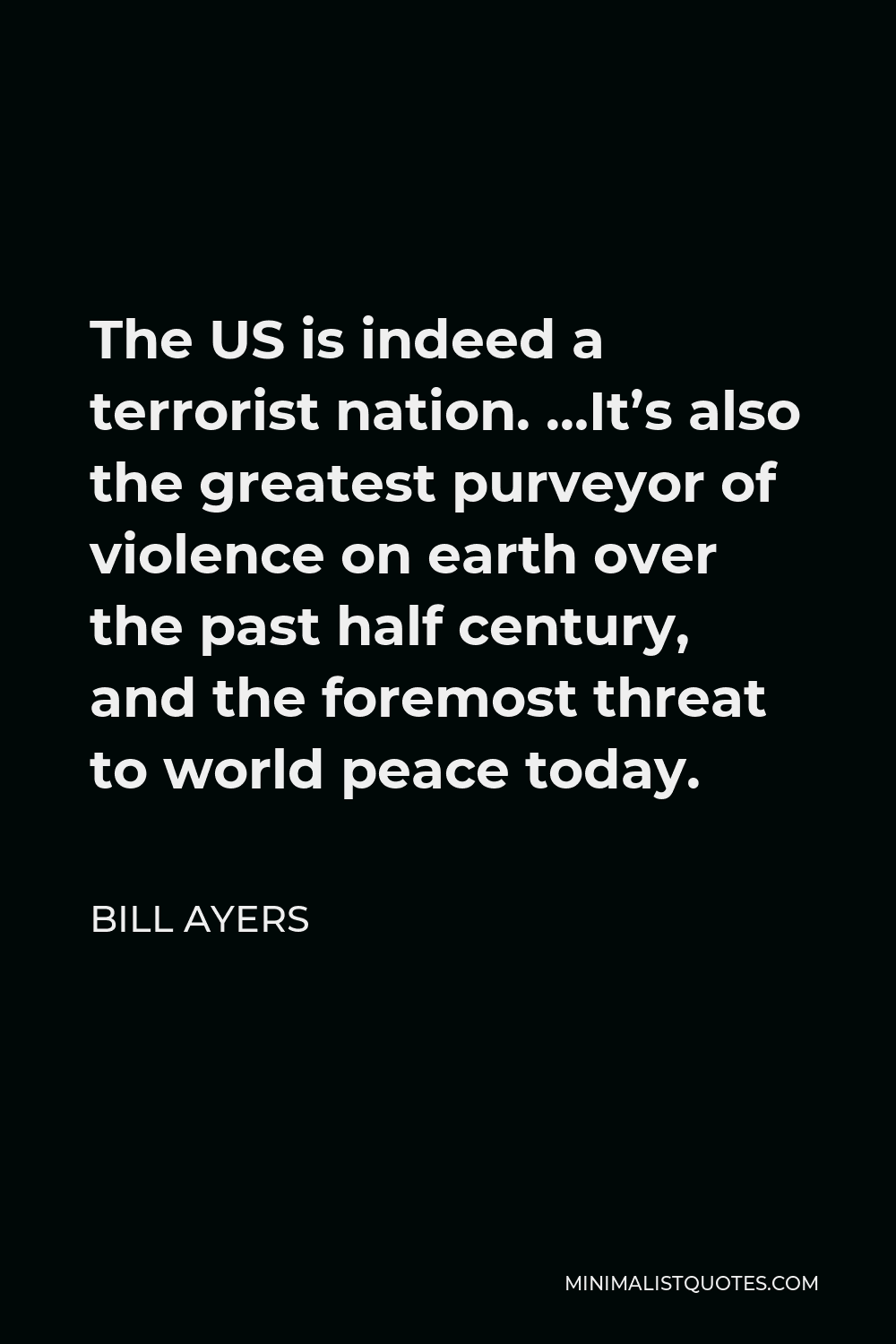
The US is indeed a terrorist nation. …It’s also the greatest purveyor of violence on earth over the past half century, and the foremost threat to world peace today.
BILL AYERS -





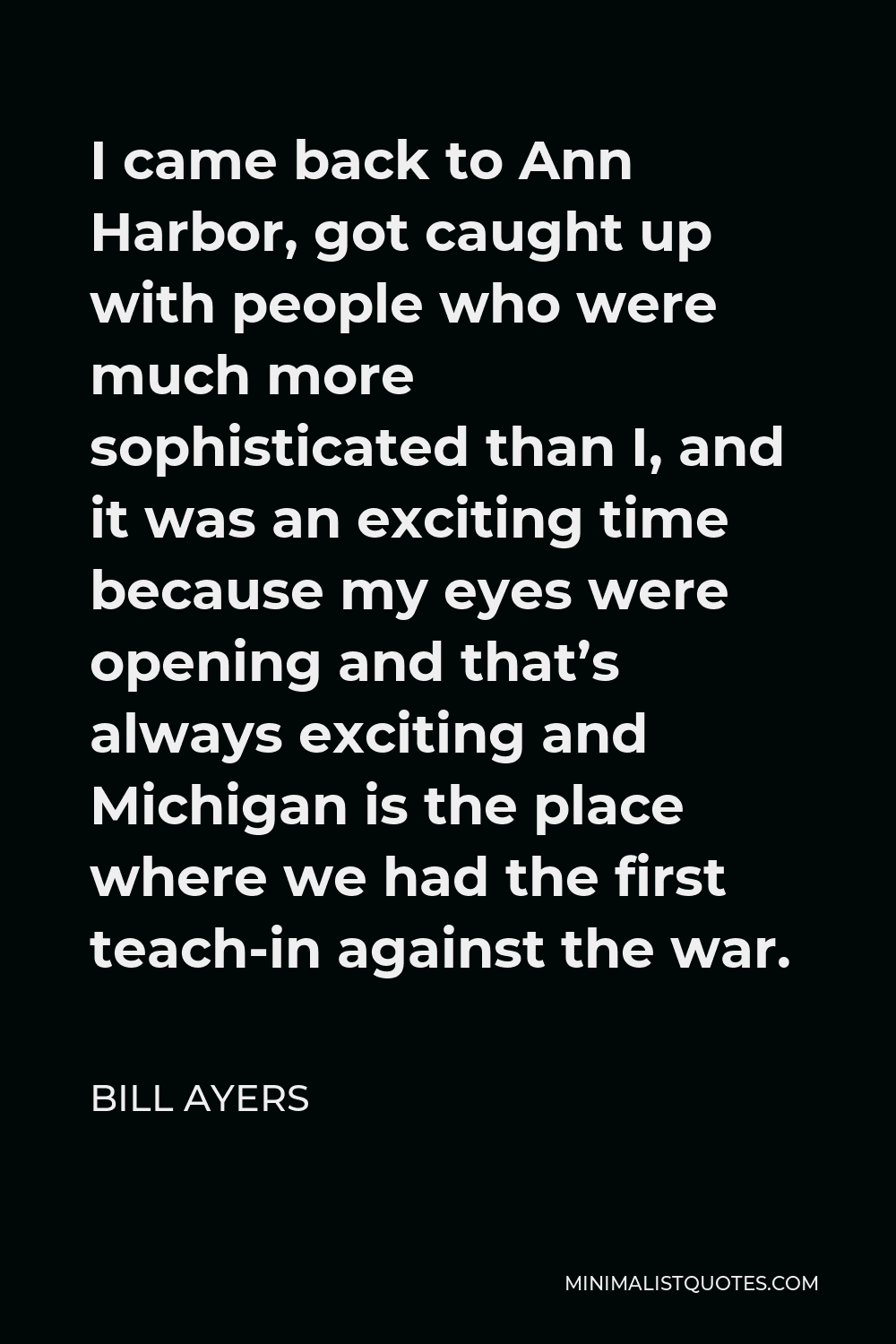
I came back to Ann Harbor, got caught up with people who were much more sophisticated than I, and it was an exciting time because my eyes were opening and that’s always exciting and Michigan is the place where we had the first teach-in against the war.
BILL AYERS -





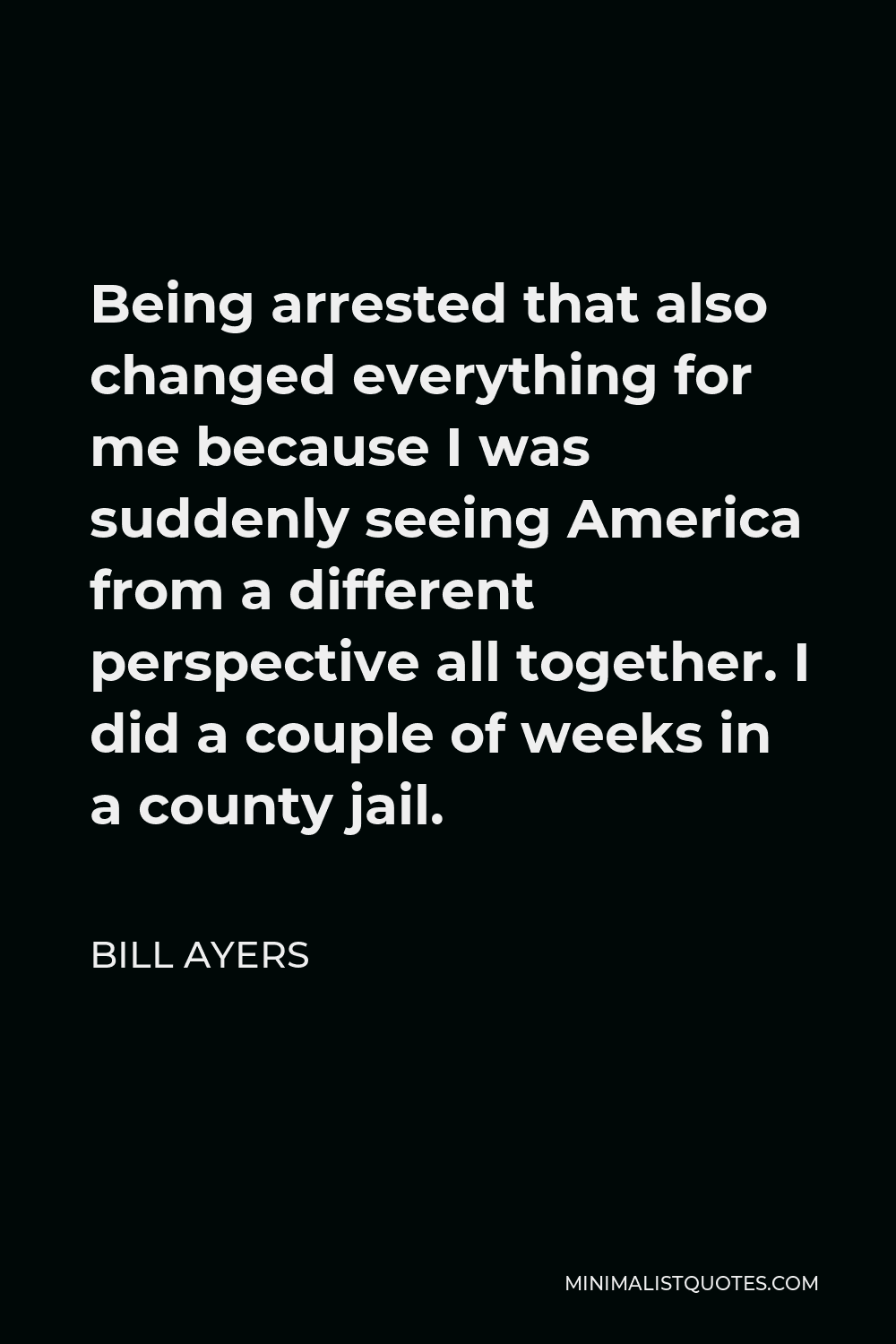
Being arrested that also changed everything for me because I was suddenly seeing America from a different perspective all together. I did a couple of weeks in a county jail.
BILL AYERS -





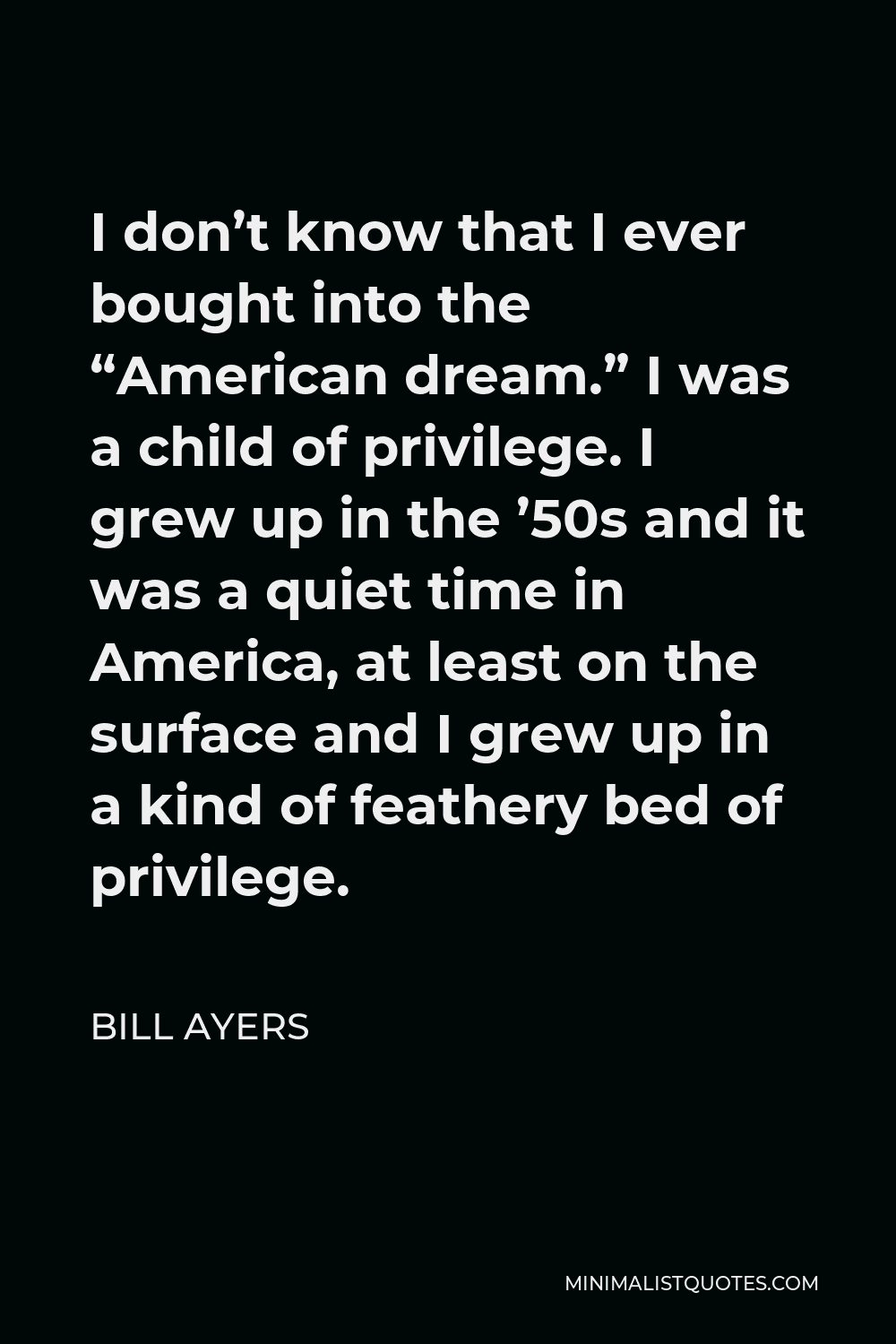
I don’t know that I ever bought into the “American dream.” I was a child of privilege. I grew up in the ’50s and it was a quiet time in America, at least on the surface and I grew up in a kind of feathery bed of privilege.
BILL AYERS
![Bill Ayers Quote - There was a sense of palpable relief that George [W.] Bush was leaving and that the Republicans had slipped back and that was a wonderful feeling.](https://minimalistquotes.com/images/there-was-a-sense-of-palpable-relief-that-george-w.jpg)
![Bill Ayers Quote - There was a sense of palpable relief that George [W.] Bush was leaving and that the Republicans had slipped back and that was a wonderful feeling.](https://minimalistquotes.com/images/grey-there-was-a-sense-of-palpable-relief-tha.jpg)
![Bill Ayers Quote - There was a sense of palpable relief that George [W.] Bush was leaving and that the Republicans had slipped back and that was a wonderful feeling.](https://minimalistquotes.com/images/blue-there-was-a-sense-of-palpable-relief-tha.jpg)
![Bill Ayers Quote - There was a sense of palpable relief that George [W.] Bush was leaving and that the Republicans had slipped back and that was a wonderful feeling.](https://minimalistquotes.com/images/red-there-was-a-sense-of-palpable-relief-tha.jpg)
![Bill Ayers Quote - There was a sense of palpable relief that George [W.] Bush was leaving and that the Republicans had slipped back and that was a wonderful feeling.](https://minimalistquotes.com/images/brown-there-was-a-sense-of-palpable-relief-tha.jpg)
![Bill Ayers Quote - There was a sense of palpable relief that George [W.] Bush was leaving and that the Republicans had slipped back and that was a wonderful feeling.](https://minimalistquotes.com/images/white-there-was-a-sense-of-palpable-relief-tha.jpg)

